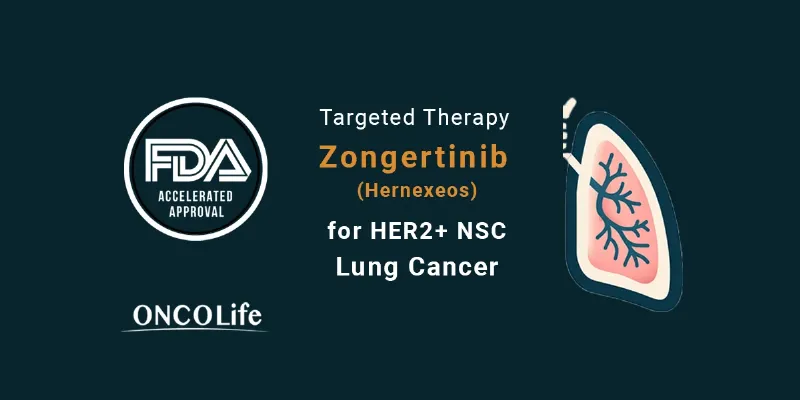Zongertinib Gains FDA Accelerated Approval for HER2+ NSCLC with 75% ORR

8 August 2025
The FDA has granted accelerated approval to zongertinib for pretreated, HER2-mutant non-squamous NSCLC, based on results from the Beamion LUNG-1 trial. In HER2 TKI-naïve patients, zongertinib achieved a 75% objective response rate, with 58% maintaining response beyond six months. The drug was well tolerated, offering a targeted treatment option for this underserved lung cancer subset.
The U.S. Food and Drug Administration (FDA) has granted accelerated approval to zongertinib (Hernexeos, Boehringer Ingelheim) for adults with unresectable or metastatic non-squamous non–small cell lung cancer (NSCLC) harboring HER2 tyrosine kinase domain (TKD) activating mutations. The approval applies to patients who have received prior systemic therapy and whose tumors are confirmed to carry HER2 mutations by an FDA-approved test.
The decision is based on compelling results from the Phase 1 Beamion LUNG-1 trial (NCT04886804), which demonstrated robust efficacy and favorable safety for zongertinib monotherapy in a hard-to-treat patient population. The FDA also approved the Oncomine Dx Target Test as a companion diagnostic for detecting HER2 TKD mutations in eligible NSCLC patients.
Promising Results in Pretreated NSCLC
In the trial’s dose-expansion phase, 71 patients with HER2-mutant NSCLC who had previously received platinum-based chemotherapy—but no HER2-targeted therapy—achieved an objective response rate (ORR) of 75% (95% CI, 63–83), with 58% maintaining response for at least six months.
In a second cohort of 34 patients who had received both chemotherapy and a HER2-targeted antibody-drug conjugate (ADC), ORR was 44% (95% CI, 29–61), and 27% had responses lasting at least six months.
The high response rates underscore the clinical relevance of zongertinib’s mechanism: selective inhibition of mutant HER2, which drives tumor progression in a subset of NSCLC patients historically underserved by existing targeted therapies.
Safety Profile and Dosing
Zongertinib was generally well tolerated. The majority of treatment-related adverse events (TRAEs) were mild to moderate, with diarrhea (51%) and rash (27%) being the most commonly reported. Only one patient experienced a grade ≥3 TRAE, and no cases of treatment-related interstitial lung disease were observed.
Dose reductions due to TRAEs occurred in 5% of patients, and treatment discontinuation was required in just 3%. The recommended dose of zongertinib is 120 mg orally once daily for patients under 90 kg and 180 mg daily for those 90 kg or above, with or without food. Treatment is continued until disease progression or unacceptable toxicity.
The approval adds a new dimension to HER2-targeted therapy, which has lagged behind EGFR and ALK in NSCLC despite HER2 mutations occurring in approximately 2–4% of non-squamous cases.











Comments
No Comments Yet!